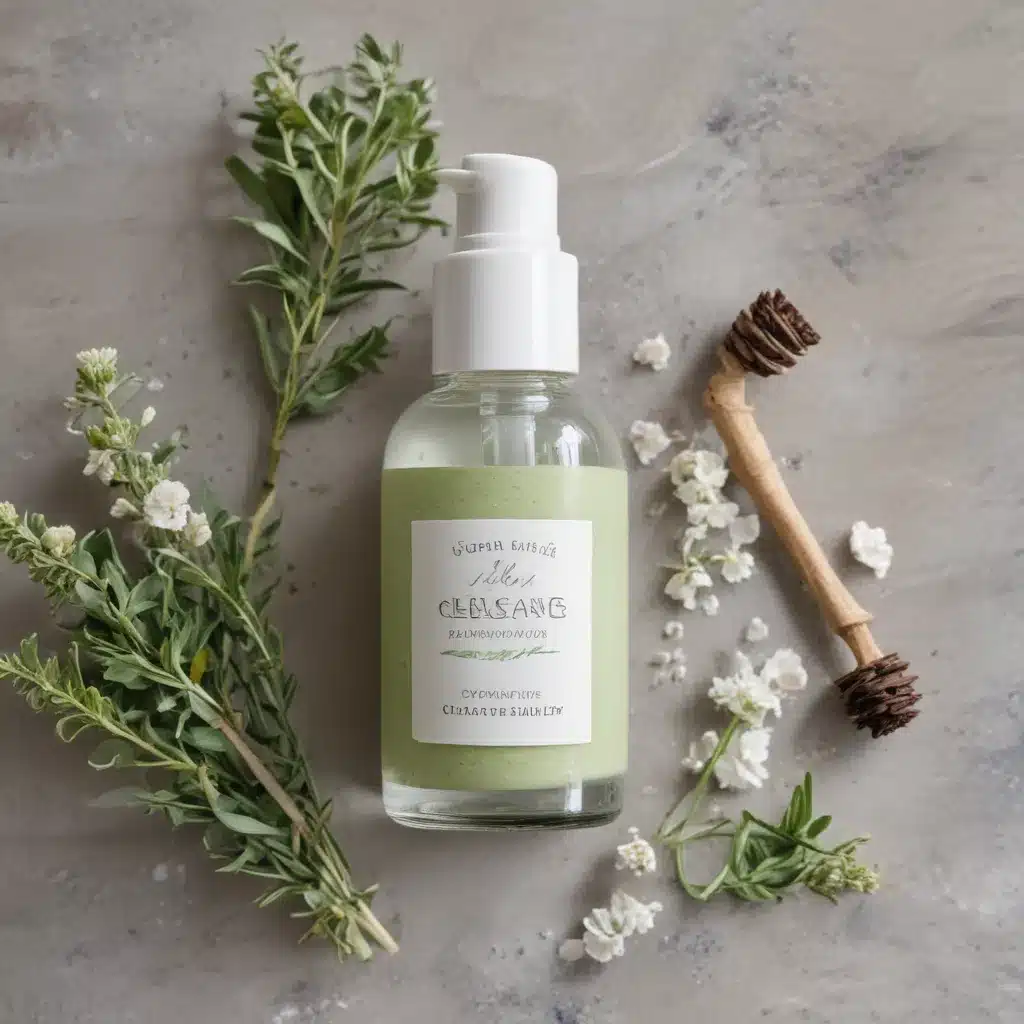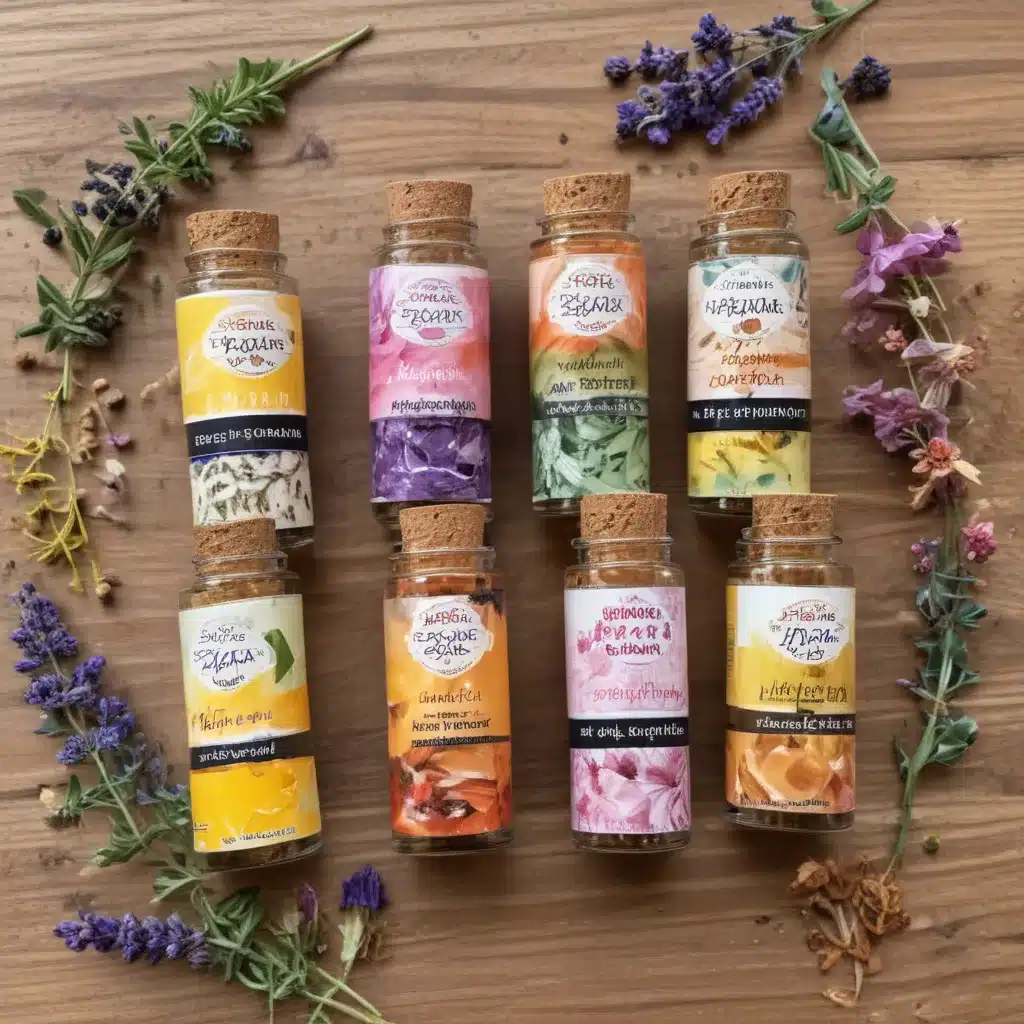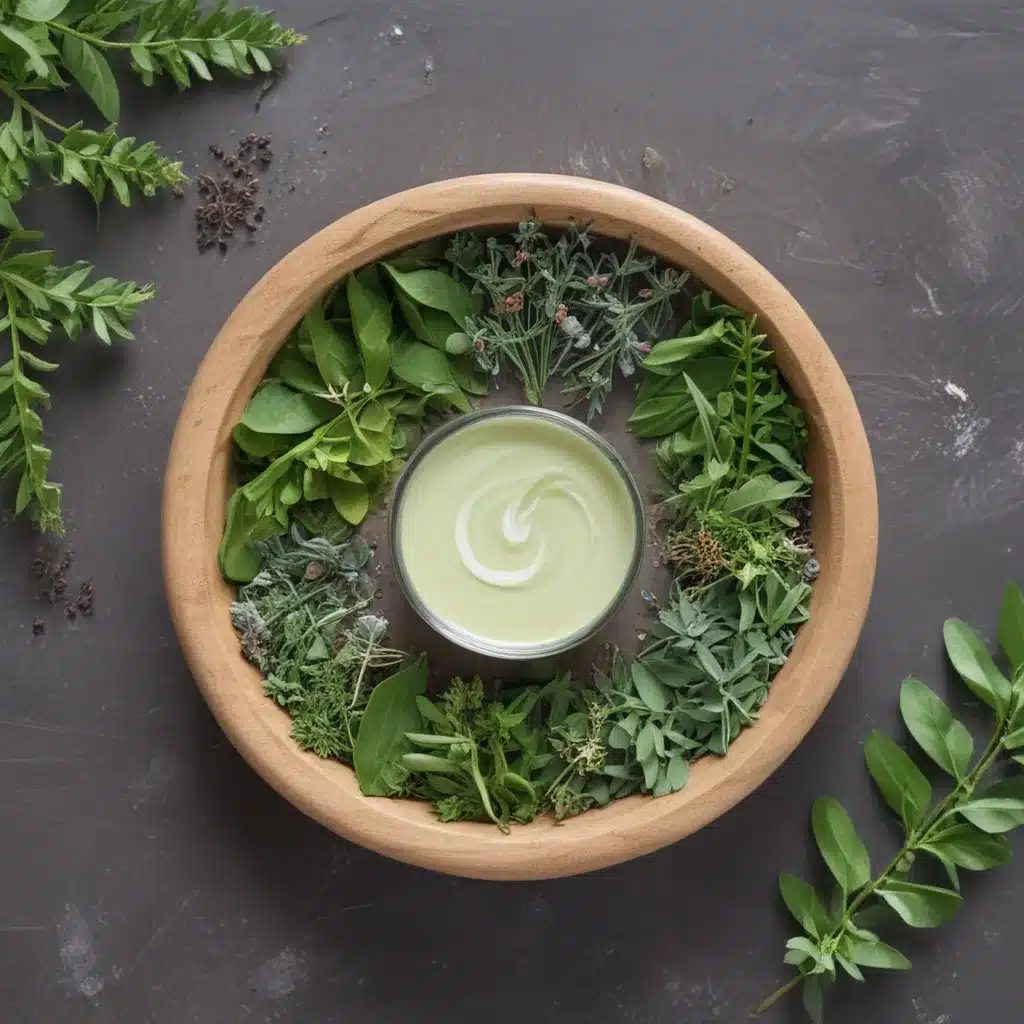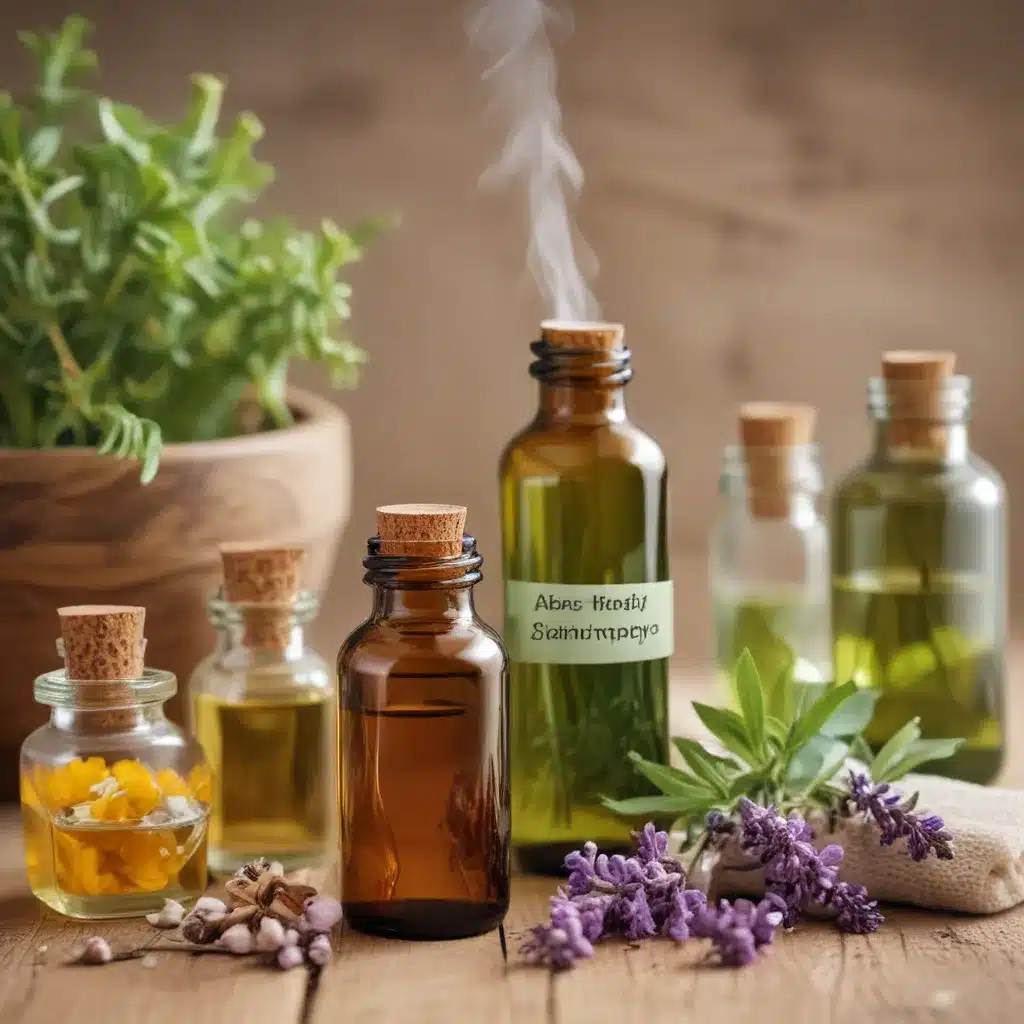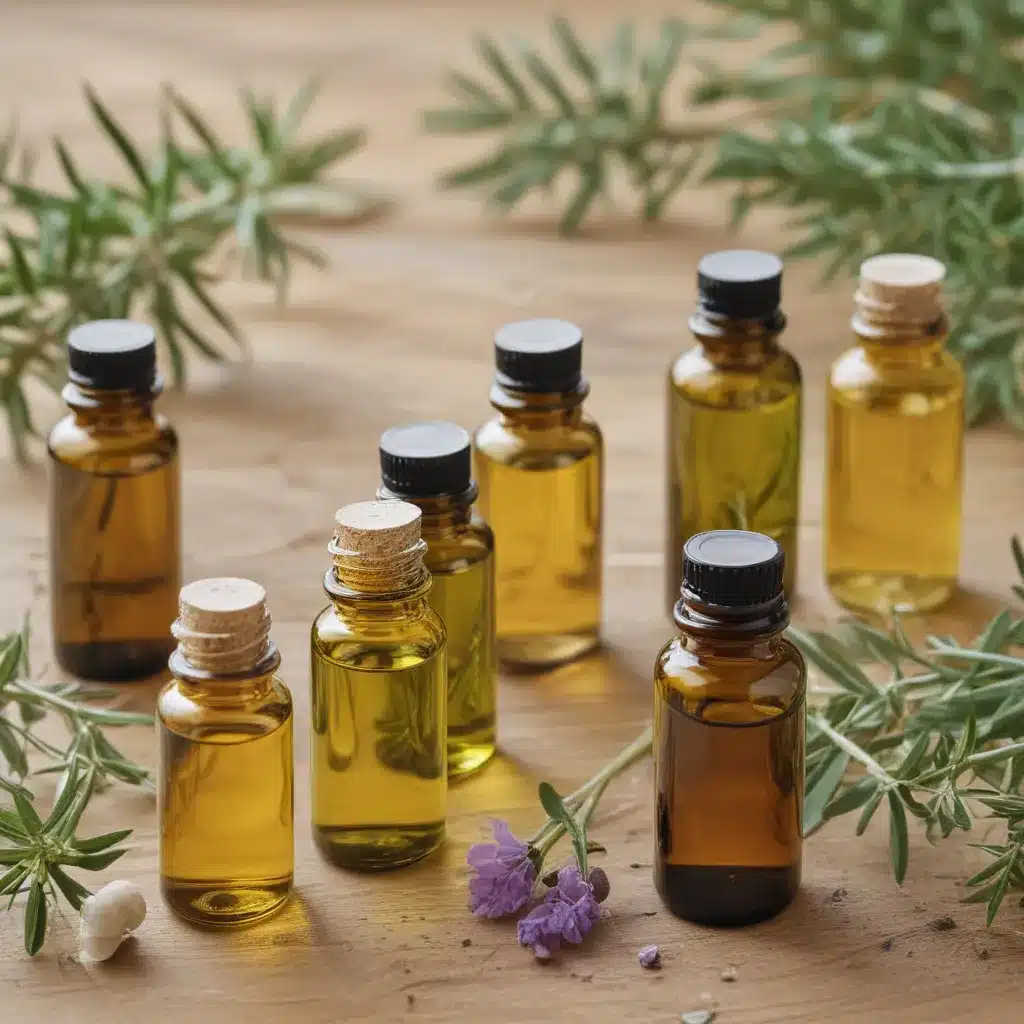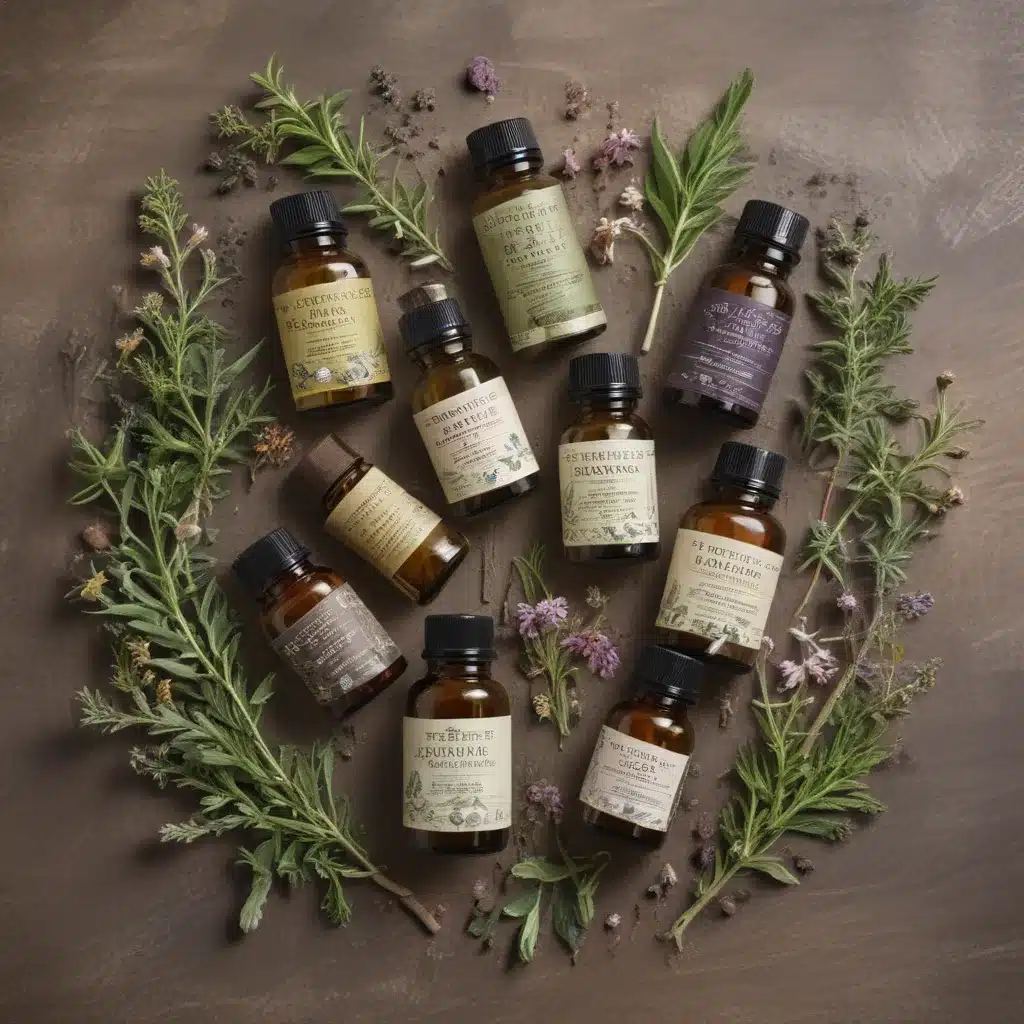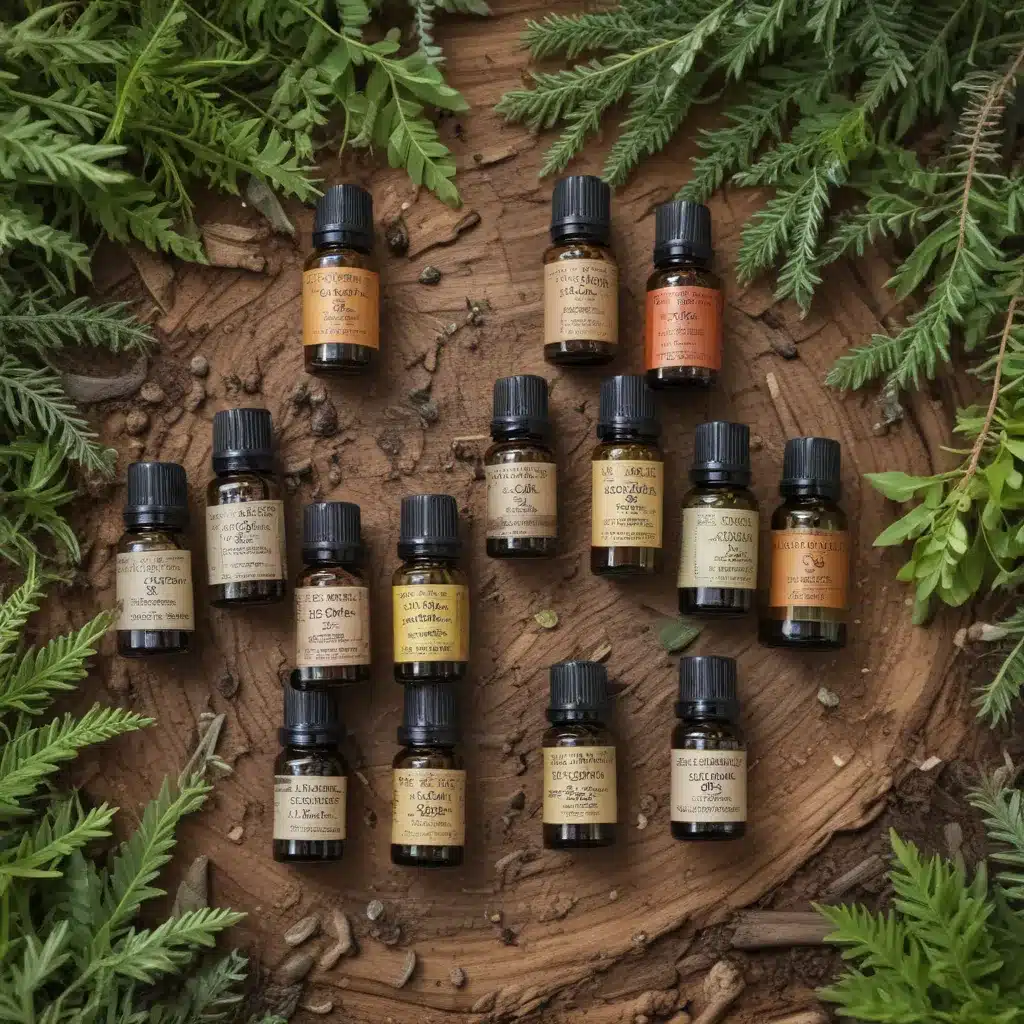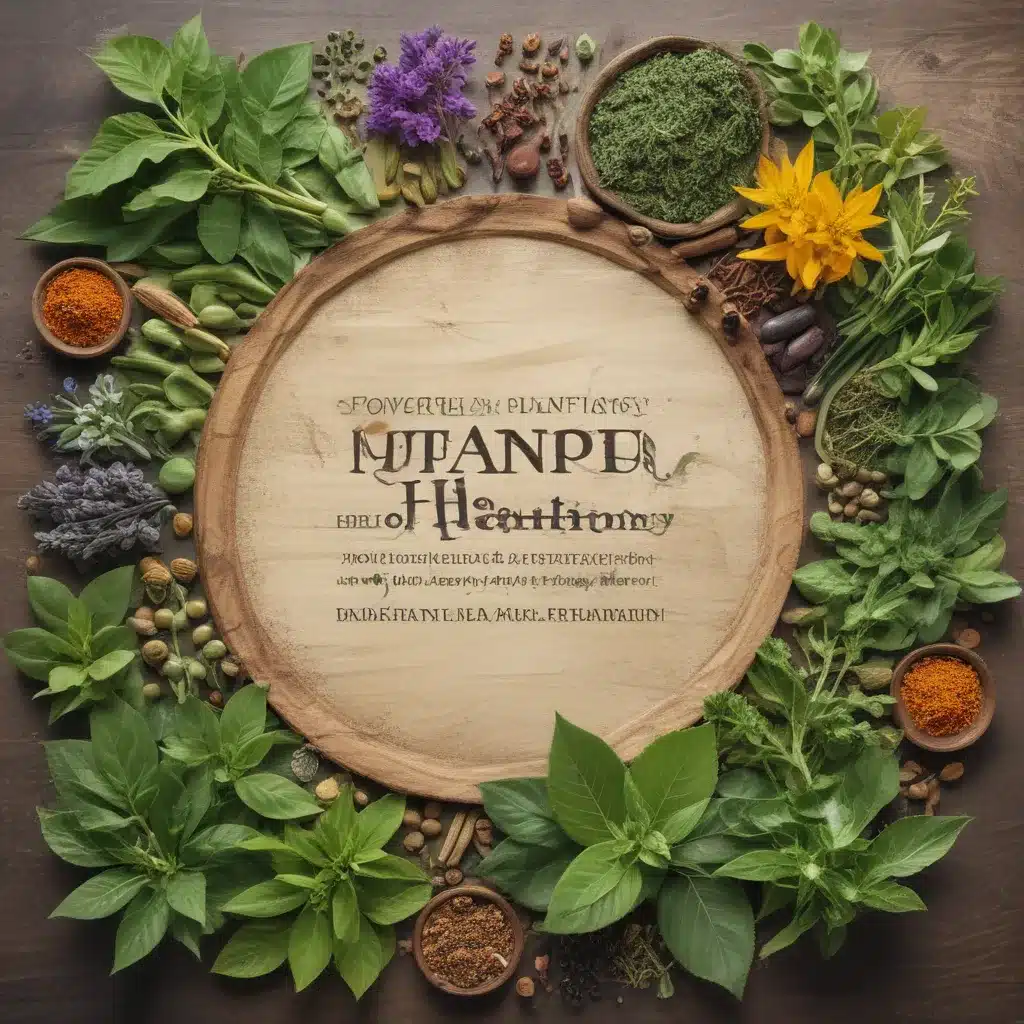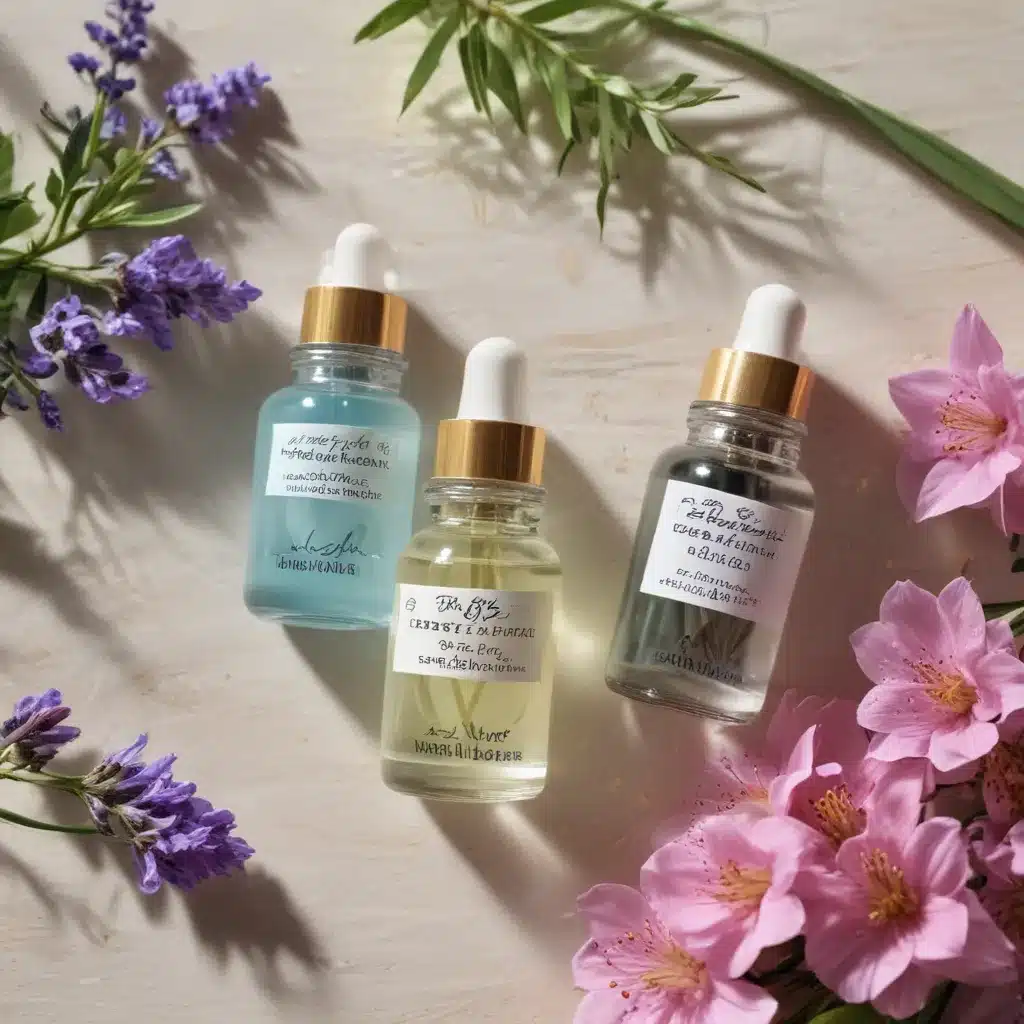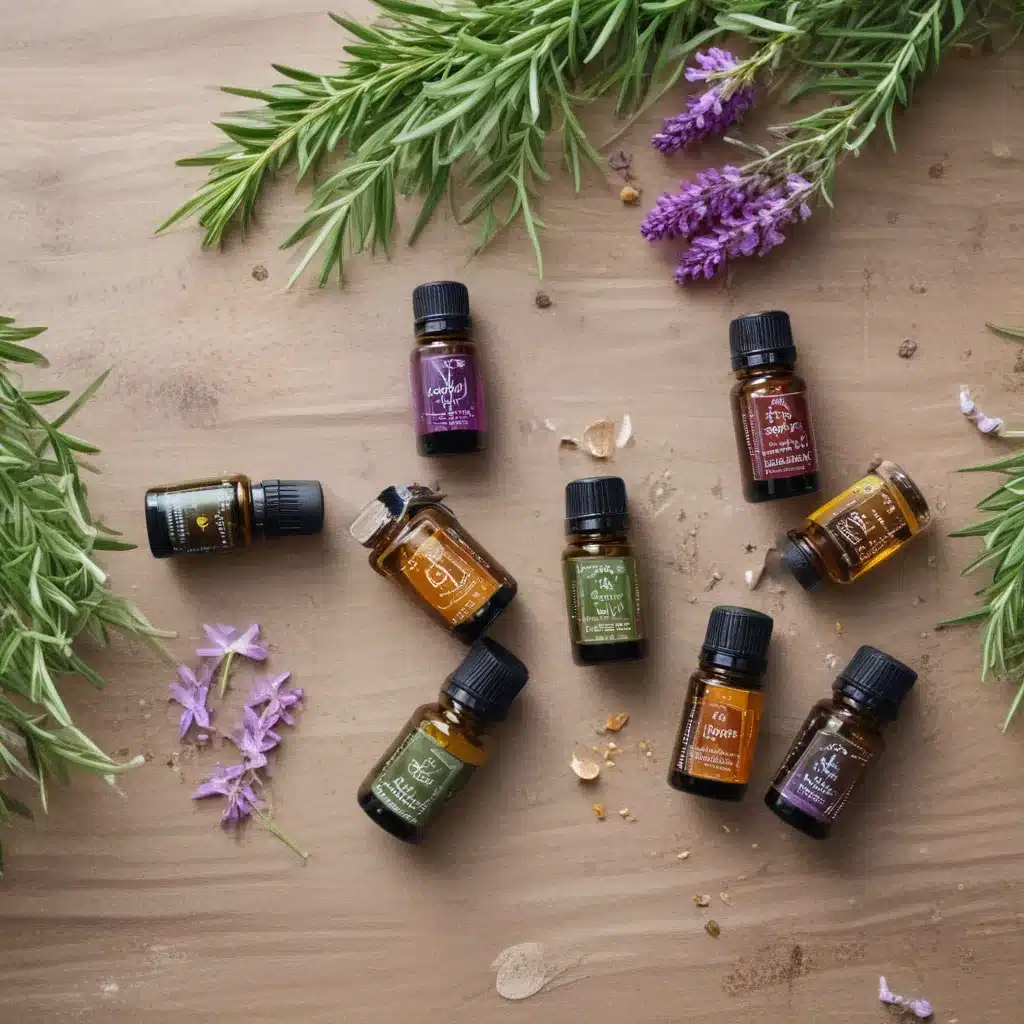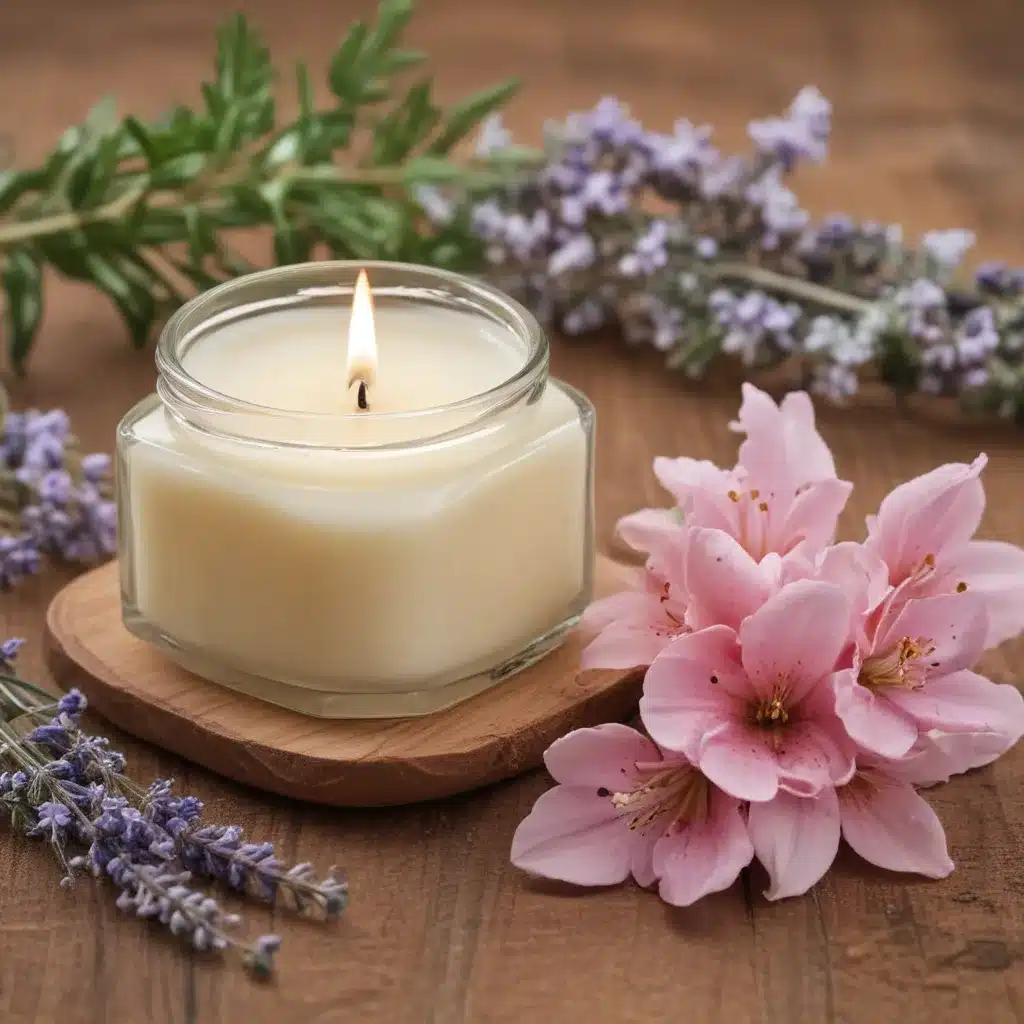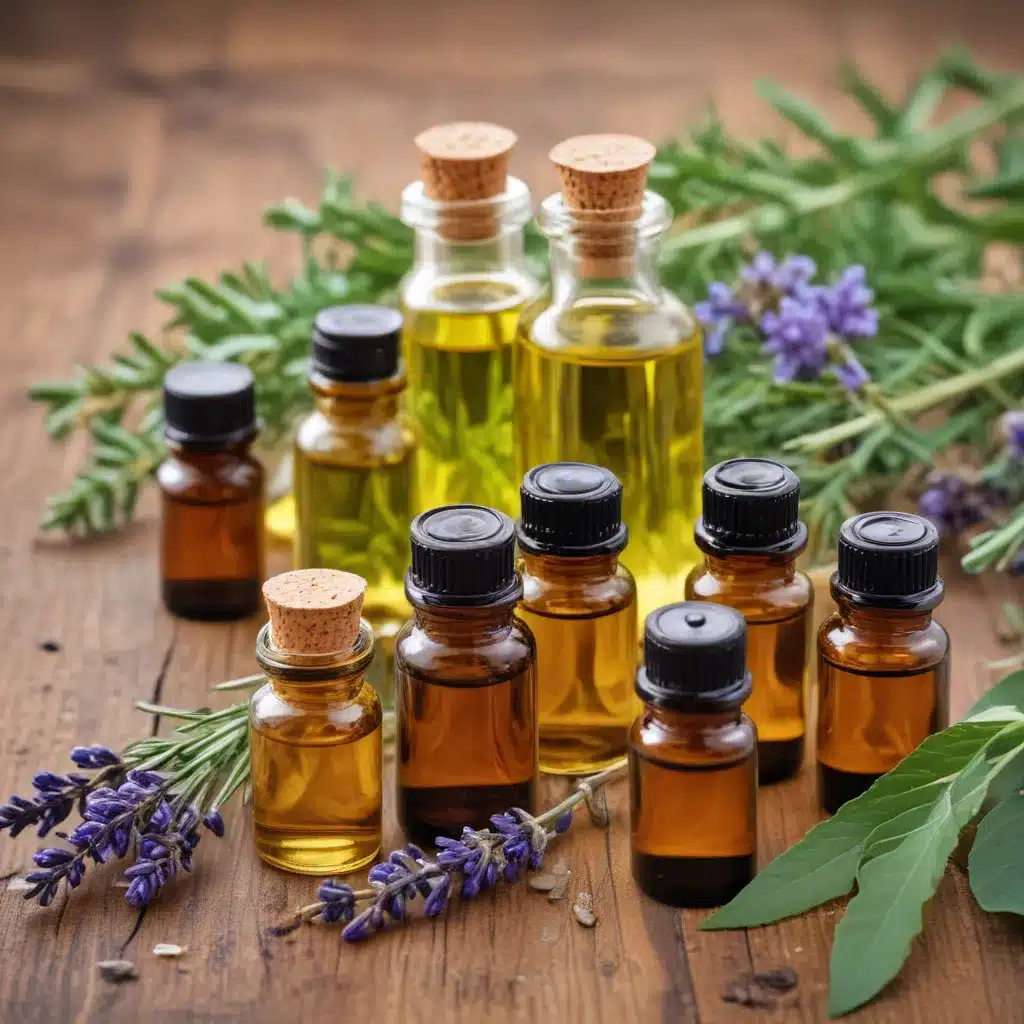
The Power of Nature’s Elixirs
I’ve always been fascinated by the incredible healing properties of essential oils. As someone who’s tried countless over-the-counter and prescription remedies, I can say with certainty that these concentrated plant extracts have transformed my life in ways I never could have imagined. From soothing my anxiety to alleviating chronic pain, essential oils have become an indispensable part of my wellness routine – and I’m eager to share their magic with you.
You see, I used to be the poster child for Western medicine. Whenever I had a headache, I’d pop an ibuprofen. Couldn’t sleep? No problem, I’d wash down a sleeping pill. But the more I relied on these synthetic solutions, the worse I felt. The side effects started piling up – upset stomach, drowsiness, fogginess, you name it. I knew there had to be a better way.
That’s when I discovered the world of aromatherapy. I was immediately intrigued by the idea of using pure, natural plant essences to address my ailments. Could these little bottles really hold the key to radiant health and wellbeing? There was only one way to find out. I dove headfirst into research, learning everything I could about the therapeutic applications of essential oils.
And let me tell you, I was blown away by what I discovered. Lavender oil for anxiety? Peppermint oil for migraines? Frankincense oil for inflammation? It seemed almost too good to be true. But the more I experimented, the more I realized that these natural remedies were nothing short of miraculous.
Now, I’m not saying essential oils are a panacea – they certainly don’t replace proper medical care, and it’s always important to consult with a healthcare professional. But in my experience, they can be incredibly powerful complementary tools for managing a wide range of ailments and afflictions. And the best part? They’re completely safe, non-toxic, and free from the nasty side effects of synthetic drugs.
So if you’re curious about exploring the wonders of essential oils, you’ve come to the right place. In this in-depth guide, I’ll be sharing my personal experiences and insights on how to use these plant-based elixirs to address a variety of common health concerns. From relieving stress and anxiety to soothing muscle aches and pains, we’ll dive deep into the science-backed benefits of some of the most versatile essential oils out there.
Get ready to discover a whole new world of natural healing – one drop at a time. Let’s get started!
Addressing Anxiety and Stress with Essential Oils
Ah, anxiety and stress – those pesky companions that seem to plague so many of us in this fast-paced, high-pressure world. If you’re anything like me, you’ve probably tried all sorts of strategies to find relief, from deep breathing exercises to meditation to pharmaceutical medications. And while those approaches can certainly be helpful, I’ve found that essential oils offer a uniquely powerful and holistic solution.
You see, the aromatic compounds in essential oils have a direct influence on the limbic system, the part of the brain responsible for processing emotions and regulating stress. When we inhale the scent of, say, lavender or bergamot, those aromatic molecules literally travel through the nasal cavity and stimulate the olfactory receptors, triggering a cascade of neurological and physiological responses that can help calm the mind and body.
But it’s not just about the scent – essential oils can also be applied topically to specific pressure points or areas of tension, allowing the active compounds to be absorbed through the skin and into the bloodstream. This dual-action approach makes them incredibly versatile and effective for managing anxiety and stress.
Now, I know what you might be thinking – “But aren’t essential oils just a bunch of hocus pocus? How can something so natural and simple really work that well?” I hear you, and I was a skeptic too at first. But the scientific evidence is overwhelming. Study after study has demonstrated the potent anti-anxiety and stress-relieving properties of essential oils like lavender, bergamot, chamomile, and clary sage.
For example, a 2015 study published in the European Journal of Integrative Medicine found that inhaling the scent of lavender essential oil significantly reduced anxiety levels and cortisol (the stress hormone) in a group of dental patients. Another study from 2016 showed that applying a blend of bergamot, ylang-ylang, and frankincense oils to the skin helped reduce anxiety, depression, and stress in healthcare workers.
And these are just a few of the many scientific insights we have into the power of essential oils. In my own life, I’ve experienced the calming and grounding effects of these natural remedies firsthand. Whenever I’m feeling particularly frazzled or overwhelmed, I’ll whip out my trusty diffuser and inhale the soothing aromas of lavender or neroli. Or I’ll massage a few drops of chamomile or clary sage onto my temples and wrists – the results are almost immediate.
Of course, everyone’s body and brain chemistry is different, so you may need to experiment a bit to find the essential oils that work best for you. But I can say with confidence that these plant-based elixirs have been an absolute game-changer in my journey to manage anxiety and stress. They’ve helped me find a sense of calm and equilibrium that I simply couldn’t achieve with synthetic medications or other conventional approaches.
So if you’re ready to explore the transformative power of essential oils, I’d encourage you to start with some of the most well-researched and versatile options for anxiety and stress relief. Lavender, bergamot, and chamomile are all fantastic places to begin. And don’t be afraid to get creative – you can use them in a diffuser, apply them topically, or even add a few drops to your bath or skincare routine.
Remember, the key is to be patient and persistent. It may take some trial and error to find the perfect essential oil (or blend) for your unique needs. But trust me, the journey is more than worth it. These natural remedies have the power to unlock a whole new level of calm, clarity, and resilience – and I can’t wait for you to experience it for yourself.
Harnessing the Analgesic Power of Essential Oils
As someone who’s dealt with chronic pain for years, I know firsthand how debilitating and life-altering it can be. I’ve tried everything from prescription painkillers to physical therapy, and while those approaches have provided some relief, they’ve also come with their fair share of drawbacks and side effects.
That’s why I’ve become such a passionate advocate for the use of essential oils as natural analgesics (pain relievers). These concentrated plant extracts possess remarkable pain-relieving properties, and they can be employed in a variety of ways to address a wide range of aches and pains.
You see, essential oils work on multiple levels to alleviate discomfort. First and foremost, many of them have potent anti-inflammatory properties that can help reduce swelling and inflammation, which are often at the root of various types of pain. Oils like ginger, turmeric, and frankincense are particularly renowned for their ability to quell inflammation and soothe sore, achy muscles and joints.
But essential oils can also interact directly with the nervous system to block the transmission of pain signals to the brain. Compounds like menthol, camphor, and wintergreen possess a natural analgesic effect, effectively “numbing” the area of pain and providing rapid relief. And when applied topically, these oils can be absorbed through the skin and into the affected tissues, delivering targeted and long-lasting comfort.
Perhaps one of the most impressive things about using essential oils for pain management is their versatility. Whether you’re dealing with headaches, joint pain, muscle soreness, or even nerve-related discomfort, there’s likely an essential oil (or blend of oils) that can help. And the best part is, they’re completely natural and free from the harsh side effects commonly associated with pharmaceutical painkillers.
Now, I know what you might be thinking – “But how can something as simple as a few drops of oil really compete with the power of modern medicine?” It’s a fair question, and one I asked myself many times before diving headfirst into the world of essential oils. But the scientific evidence is quite compelling.
Studies have shown, for example, that peppermint oil can be just as effective as acetaminophen for relieving tension headaches, with the added benefit of zero gastrointestinal side effects. Another 2016 study found that a blend of lavender, marjoram, black pepper, and peppermint oils applied topically was able to significantly reduce pain and improve flexibility in individuals with osteoarthritis of the knee.
And these are just a couple of the many research-backed examples demonstrating the potent analgesic properties of essential oils. In my own experience, I’ve found that a few drops of ginger or turmeric oil can work wonders for soothing my chronic back and joint pain, while a quick whiff of peppermint or eucalyptus oil can quickly relieve the tension and pressure of a nasty headache.
Of course, it’s important to note that essential oils should not be used as a replacement for professional medical treatment, especially in cases of severe or persistent pain. But they can absolutely be a valuable complementary therapy, helping to alleviate discomfort and improve overall quality of life.
So if you’re someone who’s struggled with chronic pain, I’d highly encourage you to explore the power of essential oils. Start with some of the most well-researched options like peppermint, ginger, and frankincense, and don’t be afraid to get creative with blends and application methods. Experiment with topical massages, inhalation, and even adding a few drops to your bathwater.
And remember, everyone’s body is unique, so it may take some trial and error to find the essential oils that work best for your individual needs. But trust me, the journey is more than worth it. These plant-based remedies have the power to transform your relationship with pain, freeing you up to live your best, most vibrant life. So why not give them a try?
Soothing Respiratory Ailments with Essential Oils
As someone who’s struggled with respiratory issues for as long as I can remember, I know firsthand how frustrating and debilitating they can be. From chronic sinus infections to persistent coughs and congestion, I’ve tried just about every conventional treatment under the sun – from decongestants to steroid inhalers to antibiotics. And while those approaches have provided some temporary relief, they’ve also come with a slew of unpleasant side effects that I simply couldn’t tolerate in the long run.
That’s why I’ve become such a passionate advocate for the use of essential oils as a natural and effective way to address respiratory ailments. These concentrated plant extracts possess powerful anti-inflammatory, antimicrobial, and expectorant properties that can work wonders for soothing and supporting the respiratory system.
Take, for instance, the case of eucalyptus oil. This potent essential oil has long been revered for its ability to clear congestion and soothe respiratory irritation. When inhaled, the active compounds in eucalyptus oil can literally thin out mucus, making it easier to expel. And when applied topically to the chest, neck, or back, it can help reduce inflammation and swelling in the nasal passages and airways.
But eucalyptus is just the tip of the iceberg when it comes to respiratory-supporting essential oils. Oils like peppermint, tea tree, and thyme are also incredibly effective at combating respiratory infections, thanks to their powerful antimicrobial and antiviral properties. And let’s not forget about the calming and antispasmodic effects of oils like lavender and Roman chamomile, which can be incredibly helpful for soothing irritated, inflamed airways and reducing coughing fits.
The best part? These natural remedies are completely safe and free from the harsh side effects that often accompany conventional respiratory medications. No more drowsiness, no more jitters, no more upset stomachs. Just pure, plant-powered relief.
Of course, I know what you might be thinking – “But how can these essential oils really compete with the might of modern medicine?” It’s a fair question, and one I had myself before diving headfirst into the world of aromatherapy. But the scientific evidence is quite compelling.
Studies have shown, for example, that the inhalation of eucalyptus oil can be just as effective as over-the-counter decongestants for relieving nasal congestion, with the added benefit of fewer side effects. Another study found that a blend of essential oils including tea tree, peppermint, and ravensara helped significantly improve respiratory function and reduce symptoms in individuals with chronic obstructive pulmonary disease (COPD).
And these are just a few of the many research-backed examples demonstrating the potent respiratory-supporting properties of essential oils. In my own experience, I’ve found that a few drops of eucalyptus or peppermint oil in my diffuser can quickly and effectively open up my airways and ease my breathing. And when I’m dealing with a stubborn cough or sinus infection, a topical blend of oils like tea tree, thyme, and lavender has worked wonders for providing soothing relief.
Of course, it’s important to note that essential oils should not be used as a replacement for professional medical treatment, especially in cases of severe or persistent respiratory issues. But they can absolutely be a valuable complementary therapy, helping to alleviate symptoms and support overall respiratory health.
So if you’re someone who’s struggled with respiratory ailments, I’d highly encourage you to explore the power of essential oils. Start with some of the most well-researched options like eucalyptus, peppermint, and tea tree, and don’t be afraid to get creative with blends and application methods. Experiment with diffusing, topical application, and even adding a few drops to your bathwater.
And remember, everyone’s body is unique, so it may take some trial and error to find the essential oils that work best for your individual needs. But trust me, the journey is more than worth it. These plant-based remedies have the power to transform your relationship with respiratory health, freeing you up to breathe easier and live your best, most vibrant life. So why not give them a try?
Harnessing the Immune-Boosting Power of Essential Oils
In this day and age, it feels like we’re constantly bombarded with news about the latest viral outbreaks, bacteria-borne illnesses, and other threats to our immune system. And as someone who’s always been a bit of a germaphobe, I’ll admit that I’ve found myself feeling increasingly anxious and overwhelmed by it all.
But you know what’s helped me find a sense of calm and confidence in the face of these health challenges? The incredible power of essential oils.
You see, these concentrated plant extracts possess a remarkable array of immune-boosting properties that can help strengthen our body’s natural defenses and ward off a variety of pathogens. From their potent antimicrobial and antiviral effects to their ability to modulate the inflammatory response, essential oils offer a truly holistic and natural approach to supporting overall immune function.
Take, for example, the case of tea tree oil. This powerhouse essential oil is renowned for its broad-spectrum antimicrobial activity, which means it can effectively combat a wide range of bacteria, fungi, and viruses. Studies have shown that tea tree oil can inhibit the growth and spread of everything from Staphylococcus aureus (a common cause of skin infections) to the influenza virus.
But tea tree oil is just one of many essential oils with proven immune-boosting benefits. Oils like oregano, thyme, and clove also possess impressive antimicrobial and antiviral properties, while others like cinnamon, ginger, and turmeric are lauded for their ability to modulate the inflammatory response and support overall immune function.
And the best part? These plant-based remedies are completely natural and free from the harsh side effects that often come with conventional immune-boosting supplements or medications. No more jitters, no more upset stomachs, no more drowsiness. Just pure, potent plant power.
Of course, I know what you might be thinking – “But how can these essential oils really compete with the might of modern medicine?” It’s a fair question, and one I had myself before diving headfirst into the world of aromatherapy. But the scientific evidence is quite compelling.
Studies have shown, for example, that the inhalation of tea tree oil can be just as effective as over-the-counter antifungal treatments for combating toenail fungus. Another study found that a blend of essential oils including oregano, thyme, and cinnamon helped significantly reduce the severity and duration of cold and flu symptoms in a group of healthcare workers.
And these are just a few of the many research-backed examples demonstrating the potent immune-boosting properties of essential oils. In my own experience, I’ve found that a few drops of oregano or clove oil in my diffuser can help me feel more grounded and resilient during cold and flu season. And when I’m feeling under the weather, a topical blend of oils like ginger, turmeric, and cinnamon has worked wonders for soothing inflammation and supporting my body’s natural healing processes.
Of course, it’s important to note that essential oils should not be used as a replacement for professional medical treatment, especially in cases of severe or persistent illness. But they can absolutely be a valuable complementary therapy, helping to bolster our immune defenses and keep us feeling our best.
So if you’re someone who’s looking to fortify your immune system with natural, plant-based remedies, I’d highly encourage you to explore the power of essential oils. Start with some of the most well-researched options like tea tree, oregano, and thyme, and don’t be afraid to get creative with blends and application methods. Experiment with diffusing, topical application, and even adding a few drops to your bathwater or drinking water.
And remember, everyone’s body is unique, so


